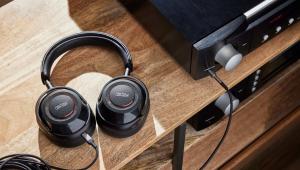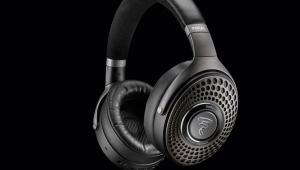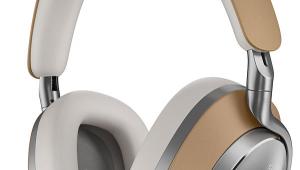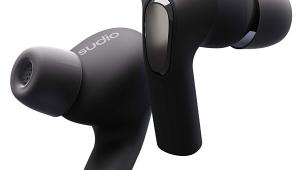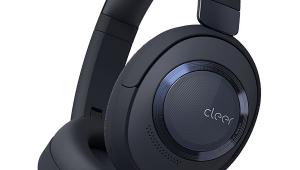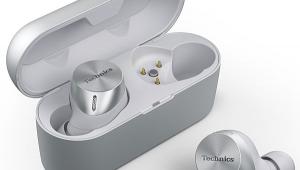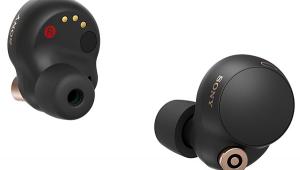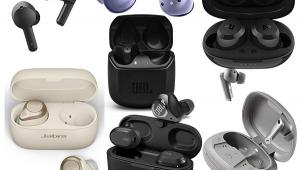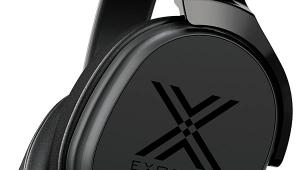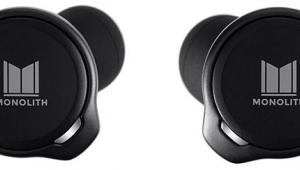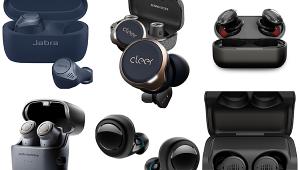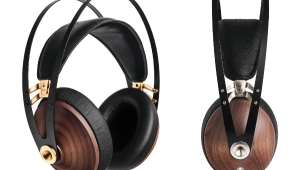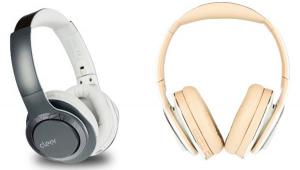Review: Astro A50 Gaming Headset
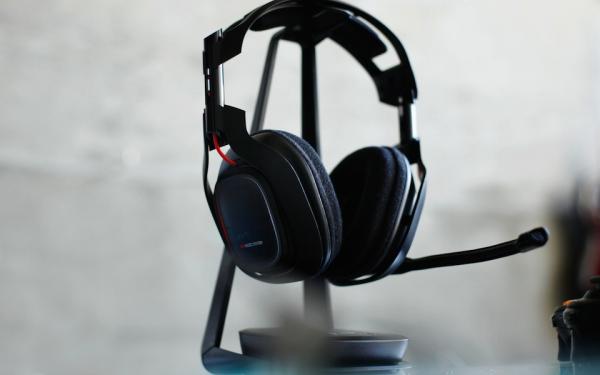
When I reviewed the Astro A40 MLG edition headset and wireless mixamp late last year, my complaints were minor. Since then, they've become my go-to cans; I even use them for transcribing interviews. It's overkill, I know. I've used them exclusively for the past eight months because I haven't heard another gaming headset that sounds anywhere near as good. That is until I spent quality time with Astro's new model, the A50.
Because the A40s were designed for competitive gaming, a few concessions were made to ensure the best experience in that fierce environment. The A50s, on the other hand, are designed for the living room. While the overall styling of the headset mimics its predecessor, there are also a few key differences in functionality between the A40 and A50. The removable "clan" tags covering the outside of the earcups are gone. So is the ability to place the boom mic on either side of the headset, but that's got an upside too - the A50 mic is hardwired into the left earcup now, but raising it upright automatically mutes it. Clever. The wireless transmitter and voice/audio balance controls reside in and on the right earcup.
The A50 is every bit as comfortable to wear for extended periods as its older brother. The supple memory foam earcups do double duty, providing good isolation, and they're comfortable enough to help make the user forget they're wearing headphones at all. By removing the clan tags, has Astro also increased the sound isolation factor. Closing off the rear of the drivers results in better sound, too. To test just how well the A50s were at keeping outside noise out, I set them up on the PS3 at my parents' while my dad played guitar. I had him crank his Epiphone Casino up while I made my way through Beck's charming album soundtrack for Sound Shapes. I was one room away with the volume at just over half, and while my father was playing, I didn't hear a thing besides what was happening on the TV.
What continues to impress me most is that the increased weight of the A50s is barely noticeable. This is no small feat considering the headset is packing both the battery and the wireless transmitter on-board, whereas the A40s carried drivers, a mic, and nothing else. Astro says this battery should last the average user several years and offers a warranty plan for replacements. Not the best consolation prize, I know. The downside of this is the battery isn't replaceable, nor does it last as long between charges as the A40's setup. With the A40s, I get between 25 and 30 hours of use between charges. The A50s? About eight. I had to charge my set five times during my review. A representative for the company told me the reason the battery capacity is lower is because they had to keep the weight of the set in mind during the design process.
The power and sound preset buttons are situated on the backside of the right earcup, tucked just under where the frame and earcup meet. They're tiny, stiff and hard to reach without taking the headset off. The volume adjustment wheel is on the bottom corner of the earcup and I had no problem reaching it while playing. This leads me to believe Astro doesn't want you to fiddle with the preset settings once you're settled in with a movie or a game.
These presets offer three different listening options. One is designed for media and gives bass and treble a boost. Another is pure, unaltered sound. The final setting is a "pro" mode that lowers bass and increases treble, making it easier to hear footsteps or someone reloading when you're playing an FPS like Call of Duty or Halo: Reach online. I found the media setting had the best sound for everything. There was plenty of deep, rich bass but it was well-balanced and didn't overpower the rest of the frequency spectrum.
I ran the A50s through their paces on the PS3 with BioShock. It's still one of the best games on this generation of home consoles, even four years after its initial release on the platform. The art-deco asylum of Rapture's reference-level audio sounded as oppressive as ever. The undersea city's creaks, leaks and groans underscored the menacing Big Daddy's lumbering footsteps and trademark whale-like call. This time through, I noticed just how audio was used to confuse the player of enemy positions, especially when you're surrounded by "God-damned Splicers." It only added to the disorientation of getting knocked around by the genetic-code-modifying freaks.
On 360, I put time in with last year's Battlefield 3. After setting the audio mode to "War Tapes" in the game's options menu, I cranked the volume on the A50s and buckled up. I ran through the "Operation Sword Breaker" mission and everything from the crack of the sniper holed up in the high-rise hotel's rifle to the tremors of the level's building-toppling earthquake seared my ears. All the while, secondary effects like the sounds of the Iraqi city's road noise or the PA system spouting what may or may not be propaganda remained convincing and spatially correct, never getting muddled or lost in the thick of it.
To test the A50s' mettle handling a 7.1 channel Dolby Master Audio soundtrack, I demoed a few key scenes from last year's Blu-ray release of one of the movies that defined my childhood: Jurassic Park. As the Ford Explorers stop in front of the Tyrannosaur paddock after Nedry cuts power to the park, the T.Rex's lumbering footsteps approach. The first time the glasses of water start rippling on the dashboard, the steps are off in the distance. The ripples grow stronger and the massive beast's thunderous footsteps grow louder as it approaches. Lex and Tim's panicked dialogue cuts short when the massive dinosaur's head comes crashing through the glass roof of the truck. The earcups rattled on my head during the entire scene, but the bass was clear and free of distortion. All the while, the pitter-patter of rain took over the ambient surround field, never getting lost in the mix amongst the chaos of the king (well, queen in this case) of dinosaurs' ravenous pursuit. As she let out her victory roar, I shuddered.
I initially had my doubts about the A50s due to an issue where the audio would cut out for a half-second on a regular basis and there was a high-pitched bit of white noise from what I assumed to be the wireless transmitter located over my right ear. Astro said these were issues in pre-release models sent to the press and they'd be cleared up in time for when they hit the consumer market. A representative contacted Sound+Vision recently, passing along a link to said firmware update. In the span of five minutes, the aforementioned problems vanished. I now have no trouble recommending the A50s to anyone - they may cost a bit more than the competition, and you'll have to recharge them a bit more often, but in terms of performance they're the best gaming headset on the market, bar none.
- Log in or register to post comments


